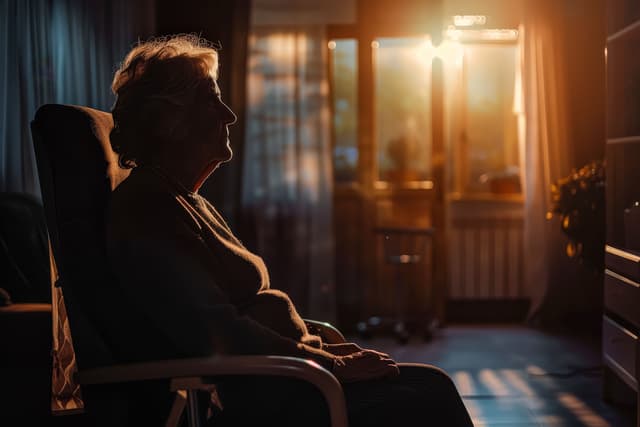
Bethanie serves as the firm's Intake and Client Success Specialist. Bethanie is a paralegal professional driven by an unwavering dedication to justice and advocacy. Armed with a degree in Paralegal Studies from Angelina College, Bethanie's journey into the legal realm has been guided by a lifelong passion for empowering others. Her fervent belief in the significance of every individual's voice fuels her daily pursuits. As the firm's Intake and Client Success Specialist, Bethanie uses her empathy and understanding of the law to guide clients through every step of the process.
Residing in Houston with her partner and three beloved pets, on her off time you can find Bethanie indulging in her love for literature and reality TV. She embraces each opportunity for personal growth with enthusiasm, eager to contribute her talents to the esteemed team at Michael Hill Trial Law.
view all resources

When most people think about nursing home abuse, they imagine physical injuries or medical neglect. While those issues are serious, there is another type of abuse that is just as harmful yet far less visible. Emotional abuse in nursing homes is a widespread problem that often leaves no physical scars but causes lasting pain for residents and their families.
Michael Hill, an attorney who devotes his career to protecting nursing home residents, emphasizes that emotional abuse is not only cruel but also a violation of the law. Families deserve to understand how this abuse happens, how to recognize it, and what steps can be taken to protect their loved ones.

Medication is meant to heal, not harm. Yet in nursing homes across the country, medication errors happen far too often. These mistakes can lead to serious health problems for elderly residents who already face fragile conditions. Families who place their trust in nursing homes expect careful, accurate care, but when that trust is broken the results can be devastating.
Michael Hill, a lawyer dedicated to protecting victims of nursing home abuse and neglect, has represented families whose loved ones suffered from preventable medication errors. His experience highlights how widespread this problem is and why accountability is essential.

When families place a loved one in a nursing home, they trust that every basic need will be met. Food and nutrition are among the most fundamental of these needs. Yet, malnutrition remains one of the most common and damaging problems in nursing homes across the country. It is a sign that something has gone terribly wrong in the quality of care.
Michael Hill, an attorney dedicated to defending the rights of nursing home residents, has represented many families whose loved ones suffered because of poor nutrition. His experience shows that malnutrition is often a symptom of deeper neglect or abuse.

Every person living in a nursing home has rights that are meant to protect their safety, dignity, and quality of life. These rights are not simply suggestions. They are established by law at both the federal and state level to ensure that residents receive proper care, respect, and protection from abuse.
Michael Hill, an attorney dedicated to representing victims of nursing home abuse, has seen far too many cases where these rights were ignored. His work focuses on holding facilities accountable and ensuring that residents receive the treatment they are entitled to. Understanding these legal rights is the first step for families who want to protect their loved ones.